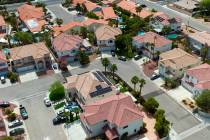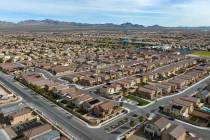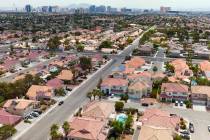Insurers dropping Chinese drywall policies
WEST PALM BEACH, Fla. — James and Maria Ivory’s dreams of a relaxing retirement on Florida’s Gulf Coast were put on hold when they discovered their new home had been built with Chinese drywall that emits sulfuric fumes and corrodes pipes. It got worse when they asked their insurer for help — and not only was their claim denied, but they’ve been told their entire policy won’t be renewed.
Thousands of homeowners nationwide who bought new houses constructed from the defective building materials are finding their hopes dashed, their lives in limbo. And experts warn that cases like the Ivorys’, in which insurers drop policies or send notices of non-renewal based on the presence of the Chinese drywall, will become rampant as insurance companies process the hundreds of claims currently in the pipeline.
At least three insurers have already canceled or refused to renew policies after homeowners sought their help replacing the bad wallboard. Because mortgage companies require homeowners to insure their properties, they are then at risk of foreclosure, yet no law prevents the cancellations.
“This is like the small wave that’s out on the horizon that’s going to continue to grow and grow until it becomes a tsunami,” said Florida attorney David Durkee, who represents hundreds of homeowners who are suing builders, suppliers and manufacturers over the drywall. “This is going to become critical mass very shortly.”
During the height of the U.S. housing boom, with building materials in short supply, American construction companies imported millions of pounds of Chinese-made drywall because it was abundant and cheap. An Associated Press analysis of shipping records found that more than 500 million pounds of Chinese gypsum board was imported between 2004 and 2008 — enough to have built tens of thousands of homes. They are heavily concentrated in the Southeast, especially Florida.
But Nevada seems to have remained largely immune to Chinese drywall problems.
“We have no knowledge of this reaching Las Vegas,” Monica Caruso, spokeswoman for Southern Nevada Home Builders Association, told the Review-Journal on Thursday. “We’ve spoken with builder representatives and they told us they did not use Chinese wallboard. Most of it was in the southeast part of the country.”
Gypsum mines are found throughout Southern Nevada and the Western United States, making the drywall material easily accessible for local builders, she said.
John Reynolds, owner of Dr Drywall & Paint Too in Las Vegas, said he’s had homeowners ask him about Chinese drywall.
“Being that Vegas has a lot of gypsum mines, I’d say it’s very doubtful that any of that board is coming here because we make all of our board locally,” he said. “That’s been my experience.”
Pacific Supply, a major supplier of drywall in Las Vegas, gets its product from companies such as Pabco Gypsum and Winroc, which have their own plants here, office manager Luann Vertrand said.
Local contractors have requested statements from Pacific Supply that the drywall they purchased is not from China, she said.
“There are so many (drywall) manufacturers in the area, there’s no need to bring it from China,” Vertrand said. “I haven’t heard of any in town.”
The defective materials have since been found by state and federal agencies to emit “volatile sulfur compounds,” and contain traces of strontium sulfide, which can produce a rotten-egg odor, along with organic compounds not found in American-made drywall. Homeowners complain the fumes are corroding copper pipes, destroying televisions and air conditioners, and blackening jewelry and silverware. Some believe the wallboard is also making them ill.
Four Las Vegas homeowners sued homebuilder Lennar Corp. and drywall manufacturer Georgia-Pacific Corp. in August alleging use of such material in their homes.
Jeremy Parness, president of Lennar in Las Vegas, said his company received 22 calls from homeowners expressing concerns relating to Chinese drywall and only three requested an inspection.
“The inspections found absolutely no indication that the drywall installed was defective,” Parness told the Las Vegas Business Press.
Lennar has acknowledged that Chinese drywall was used in about 400 homes in Florida and has filed a $40 million lawsuit against the Chinese manufacturer and distributor.
The federal government is studying the problem and considering some sort of relief for homeowners.
Meanwhile, the AP interviewed several homeowners who, like the Ivorys, were unlucky enough to buy properties built with Chinese drywall, and are now being hit with a second and third wave of bad news: Their insurers are declining to fill their claims, then canceling the policy or issuing notices that policies won’t be renewed until the problem is fixed. The homeowners have little recourse since neither the Chinese manufacturers nor the Chinese government are likely to respond to any lawsuits or reimburse them for the defective drywall.
In each instance, the insurer learned of the drywall through a claim filed by the homeowner seeking financial help with its removal.
The Ivorys have sued, but it could take months for their case and hundreds like it to work their way through the courts. In the meantime, they have moved back to Colorado because their three-bedroom ranch home two miles from the Gulf of Mexico is unlivable and soon will be uninsured.
“It’s been an emotional roller coaster,” said James Ivory, who is still making mortgage payments on the house. “It was all in our heads, nice weather down there, calm life, beaches. Now I don’t know what to do.”
John Kuczwanski, a spokesman for the Ivorys’ insurer, Citizens Property Insurance Corp., said their claim was denied because the drywall is considered a builder defect, which isn’t covered under the policy. It also considers the drywall a pre-existing condition that could lead to future damage, which is why the company won’t renew the policy unless the problem is fixed.
Citizens, a last-resort insurer backed by the state of Florida for people who can’t find affordable coverage elsewhere, has received 23 claims about Chinese drywall, and has so far denied five. Citizens could not immediately say how many policies had been canceled or not renewed because of the drywall.
Robert Hartwig, president of the Insurance Information Institute, agreed that homeowners policies were never meant to cover “faulty, inadequate or defective” workmanship, construction or materials.
Tom Zutell, spokesman for the Florida Office of Insurance Regulation, said the cancellations are troubling, but legal. No law prevents insurance companies from canceling policies because of Chinese drywall.
Even if a homeowner does not file a claim over the drywall and remains covered, they could later be denied a claim for a fire or another calamity if insurance investigators determine the home contained undisclosed Chinese drywall.
“If you think that by not telling your insurance company about the drywall that you’re protected, you’re sadly mistaken,” Durkee said.
A newly married couple in Hallandale Beach, Fla., saved for five years to buy their first home only to later discover it had Chinese drywall. They filed a claim with their insurer, Universal Insurance Co. of North America, and were denied.
Universal then sent the couple a letter, stating their policy was being dropped because “the dwelling was built with Chinese drywall.”
The couple then signed with Citizens, but didn’t divulge the drywall issue, and hasn’t filed another claim. The 31-year-old man requested anonymity because he’s afraid of losing his insurance policy, and thus his home.
“I honestly don’t know what I’d do if that happened,” he said. “All this has basically taken us back five years.”
Universal did not respond to requests for comment.
Review-Journal writer Hubble Smith contributed to this report.


















